The Hidden Costs of QuickBooks
Why Now is the Time to Graduate to a Modern Financial Management Software
Understanding the Cost of Status Quo
Organizations accustomed to spending extra time managing workarounds in QuickBooks may not even realize the number of inefficiencies getting in the way of doing day-to-day business. These inefficiencies become ingrained in the day-to-day operations of the business. And because there’s no immediate cash outlay, doing nothing may seem like the only option—or at least the most cost-effective option. But the reality is: if you’re using QuickBooks you’re incurring a broad range of hidden costs.
IDC MarketScape, the ICT industry's premier vendor assessment tool, provides in-depth quantitative and qualitative technology market assessments of ICT vendors for a wide range of technology markets. This comprehensive assessment of market competitors provides consumers with the critical information necessary to make important technology decisions.
Identifying the Pain Points and the Hidden Cost to Your Business
A study by the largest independent CPA firm in California, Armanino, found these factors consistently slow down the monthly accounting process:
- Over-reliance on manual, paper-based processes
- Lack of integration between financials and other business critical applications
- Decreased staff productivity as a result of inefficient and lack of automated processes
- Inadequate data and lack of insight into the business
This study corresponds with the main bottlenecks that QuickBooks users identify as their organizations began pushing the limits of the functionality built into QuickBooks.
- Continuing to Rely on Error-Prone, Inefficient Manual Processes
- Putting up with Impaired Financial Visibility from Information Silos
- Increasing Inability to Handle Growing Data Volumes
- Using Spreadsheets to Manage Complex Processes Outside the System
Letting Technology Do the Heavy Lifting
Moving Financial Management to the Cloud
Cloud computing changes everything. You’ve probably read about cloud computing—and you’ve used it if you’ve ever searched on Google, purchased something on Amazon, or if your firm already uses web-based payroll, email, or CRM.
A new generation of cloud computing-based financial software has entirely changed the dynamics of graduating from QuickBooks; with cloud computing the vendor takes on all the information technology cost and risk. All you need is a web browser and an Internet connection—no need to invest in technology, servers, software, or IT.
So QuickBooks’ limitations drive the need for companies to graduate to a more robust system, and cloud computing takes the cost and risk out of moving to an updated financial system. As they outgrow QuickBooks’ capabilities, organizations should consider a cloud-based system that delivers best-in-class financial and accounting functionality, and offers:
Anytime, Anywhere Business Visibility
Access to Real-Time Data and Processes available anytime, anywhere with a web browser and Internet connection—offers unprecedented access to users inside and outside your organization.
Flexible Reporting with built in multi-dimensional architecture, delivers accurate and timely reports with relevant insights into data.
Role-Based Dashboards deliver real-time global and local visibility into the state of the business—to the right stakeholders at the right time—providing deep insights into business performance.
Increased Productivity
Extensive Integrations with leading applications enable organizations to easily, cost-effectively assemble an interoperable system of best-in-class applications, providing the best solutions for your business needs.
Easy User Defined Workflows automate, control, and streamline processes as needed to optimize processes throughout the organization.
Scalability
Scalable Architecture Grows with evolving business needs.
Multi-Ledger System delivers scalability and control for high-volume, high-transaction businesses.
Multi-Scenario Planning drives business performance and management, and enables storage of an unlimited number of budgets, forecasts, and other relevant reporting formats.
Measuring the True Cost of Continuing to Use QuickBooks
Despite the inefficiencies and hidden costs of continuing to use QuickBooks, when faced with the cost of change now vs. the cost to postpone, many organizations conclude it’s more cost effective to keep what they have.
While this might have been true before—when the only option was to switch to expensive on-premises software like Microsoft Dynamics or Sage—today’s cloud computing-based systems are extremely cost effective. In fact, the time you save—just from automating critical processes and eliminating spreadsheets—can often more than pay for the entire cost of moving to the new system, typically in just a few months.
You can prove this for your own organization by comparing the full costs and productivity implication of continuing to use QuickBooks with the same factors for a new cloud-based financial management system. Thousands of organizations like yours have already made this comparison, and invariably the answer is that graduating to cloud-based financials results in a tremendous, positive ROI.
Comparing Apples to Apples
This example shows that by switching to a cloud financial management system, this company realized an annual ROI of 164%. Further, this company recovered its costs in just over half a year. These numbers are typical for organizations graduating from QuickBooks to cloud financial management.
By automating and streamlining its inefficient manual processes, this company realized the following direct and indirect savings:
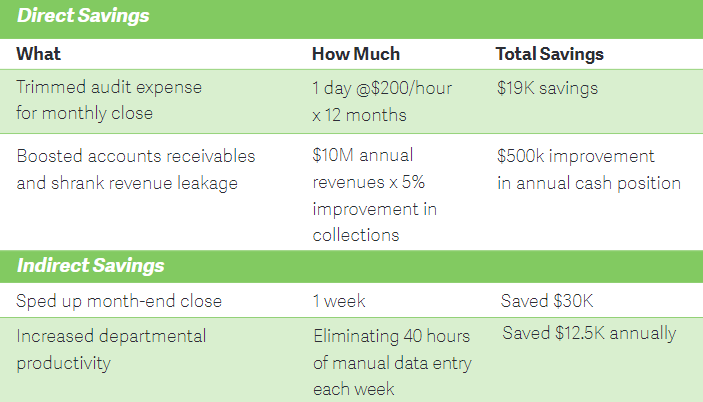
Create Your Own Checklist of Potential Savings
Use the information in this table to identify and calculate the revenue increases and cost savings your organization can gain by switching to cloud financial management software.
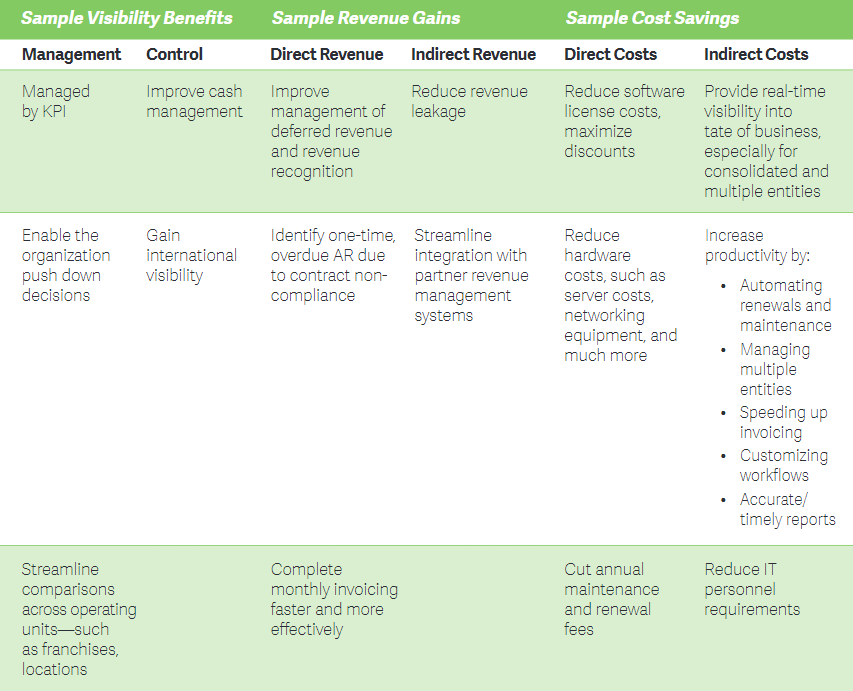
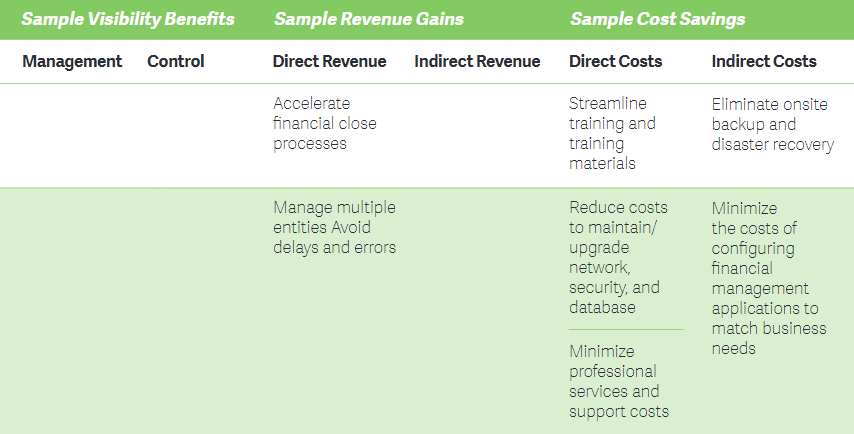
Take a Coffee Break with Sage Intacct
If you'd like to learn more about Sage Intacct and what it can do for you, register for the
Sage Intacct Coffee Break Demo
below and see what's possible!

Find out why Sage Intacct is the best choice for your business.
Gina of DeRosa Mangold Consulting explains why you should at least take 45 minutes to watch the Intacct Demo to discover what it can do for your business.
Take a look at what one of our valued customers has to say:
Francesca T.
Accounts Manager
Small-Business

"My client hired Mike and his team to facilitate the movement of their company from QuickBooks and spreadsheets (lots and lots of spreadsheets!!) over to Sage Intacct. This was a big move for us, because we were finally able to put all our apples into the same basket. Mike and his team were always easy to get a hold of despite us being in separate time zones. They answered our questions the same day they were asked or always acknowledged receipt and told me, hey we are working on it. I feel like with a big transition like this, communication is key, and it's important as the client to feel like you are being heard." Read the full review.

DeRosa Mangold Consulting is a trusted team dedicated to partnering with you in a logical fashion to help you make the best decision for your company’s future growth. On average throughout multiple industries, startups to mid-sized organizations begin to see a return on investment in about 6 months. We will personally sit down with you and crunch the numbers, so you know when to expect your own ROI. We won’t tell anything but the truth so that you can make the best decision for your organization.
Want More?
Contact us to learn more about our desire for resolving accounting problems and how it motivates us to deliver innovative solutions for everyone we work with!
To learn more about DeRosa Mangold Consulting or Sage Intacct visit:
Sage Intacct continues to be recognized by the leaders in industry standards:
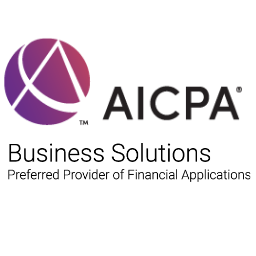
The AICPA and its subsidiary, CPA.com, named Sage Intacct as its first and only preferred provider of accounting applications.

The first and last financial management and accounting solution your business will ever need.
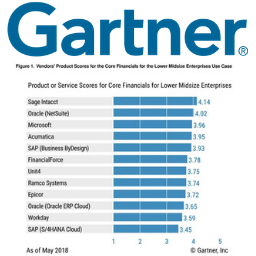
Sage Intacct financial management software receives the highest product score for Lower Midsize Enterprises Use Case ($50 million to $500 million).


